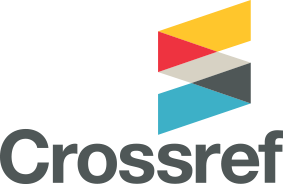Pengaruh Puasa terhadap Kejadian Contrast-Media Induced Nephropathy (CIN) pada Pemeriksaan CT-Scan Setelah Pemberian Kontras Intravena
Abstract
Pasien puasa sebelum dilakukan prosedur CT-scan dengan kontras untuk mencegah aspirasi yang mungkin terjadi akibat efek samping kontras. Puasa menyebabkan gangguan hidrasi ditambah dengan risiko nefropati yang diinduksi kontras contrast-media induced nephropathy (CIN). Peningkatan kreatinin setelah pemeriksaan dapat memprediksi timbulnya nefropati akibat kontras. Penelitian ini bertujuan mengetahui pengaruh puasa terhadap kejadian CIN. Penelitian merupakan studi deskriptif analisis dengan rancangan penelitian kasus kontrol. Subjek penelitian diambil melalui teknik consecutive random sampling pasien di Departemen Radiologi Rumah Sakit Dr. Hasan Sadikin Bandung dari bulan April–September 2012. Sebanyak 28 pasien dibagi 2 kelompok, yaitu kelompok yang mengalami peningkatan kreatinin setelah penyutikan kontras dalam 48–72 jam sebagai kelompok kasus dan kelompok yang tidak mengalami peningkatan kreatinin setelah penyuntikan kontras sebagai kelompok kontrol.Hasil penelitian menunjukkan, tidak terdapat perbedaan bermakna pada pasien puasa setelah dilakukan CT-scan dengan media kontras yang mengalami peningkatan kreatinin dan yang tidak mengalami peningkatan kreatinin (p=0,91). Terdapat hubungan usia dengan CIN pada pasien yang menjalani pemeriksaan CT dengan kontras intravena (p=0,008), dan tidak terdapat hubungan antara lama puasa dan CIN (p=0,967). Simpulan, tidak terdapat pengaruh kejadian CIN pada pasien yang menjalani pemeriksaan CT-scan dengan kontras intravena pada usia muda dan terdapat pengaruh pada usia lanjut. [MKB. 2016;49(1):55–60]
Kata kunci: CT-scan, CIN, peningkatan kreatinin, puasa
Effect of Fasting on the Contrast Media-Induced Nephropathy (CIN) Occurrence in CT Scan Examination after Intravenous Contrast Injection
Fasting before contrast enhanced CT-scan procedure is applied to prevent aspiration that may occur as a side effect of intravenous contrast. Fasting causes hydration disruption with the risk of contrast-induced nephropathy (CIN). Increased creatinine immediately after examination using contrast can predict the incidence of contrast nephropathy. The research subject was taken through consecutive random sampling technique at Department of Radiology Dr. Hasan Sadikin General Hospital Bandung from April–September 2012. This descriptive analysis study with case-control study design aimed to determine the effect of fasting on the occurrence of CIN. Subjects were recruited through consecutive random sampling technique. A total of 28 patients were divided into 2 groups: group experienced an increase in creatinine after contrast injection within 48–72 hours as the case group and the group that did not experience an increase in creatinine after intravenous contrast injection as the control group. Results showed no significant differences between fasting patients who experienced increased creatinine and who did not experience increased creatinine (p=0.910) after a CT scan with contrast medium There was a relationship between age and CIN in patients undergoing CT-scan with intravenous contrast (p=0.008) and there was no relationship between long fasting and CIN (p=0.967). It is concluded statistically that fasting in patients undergoing CT-scan with intravenous contrast at a young age does not affect the incidence of CIN; however, effect is seen in elderly patients. [MKB. 2016;49(1):55–60]
Key words: CT scan, CIN, fasting, increased creatinine
Keywords
Full Text:
PDFDOI: https://doi.org/10.15395/mkb.v49n1.988
Article Metrics
Abstract view : 4972 timesPDF - 2702 times

This work is licensed under a Creative Commons Attribution-NonCommercial 4.0 International License.

MKB is licensed under a Creative Commons Attribution-NonCommercial 4.0 International License
View My Stats






